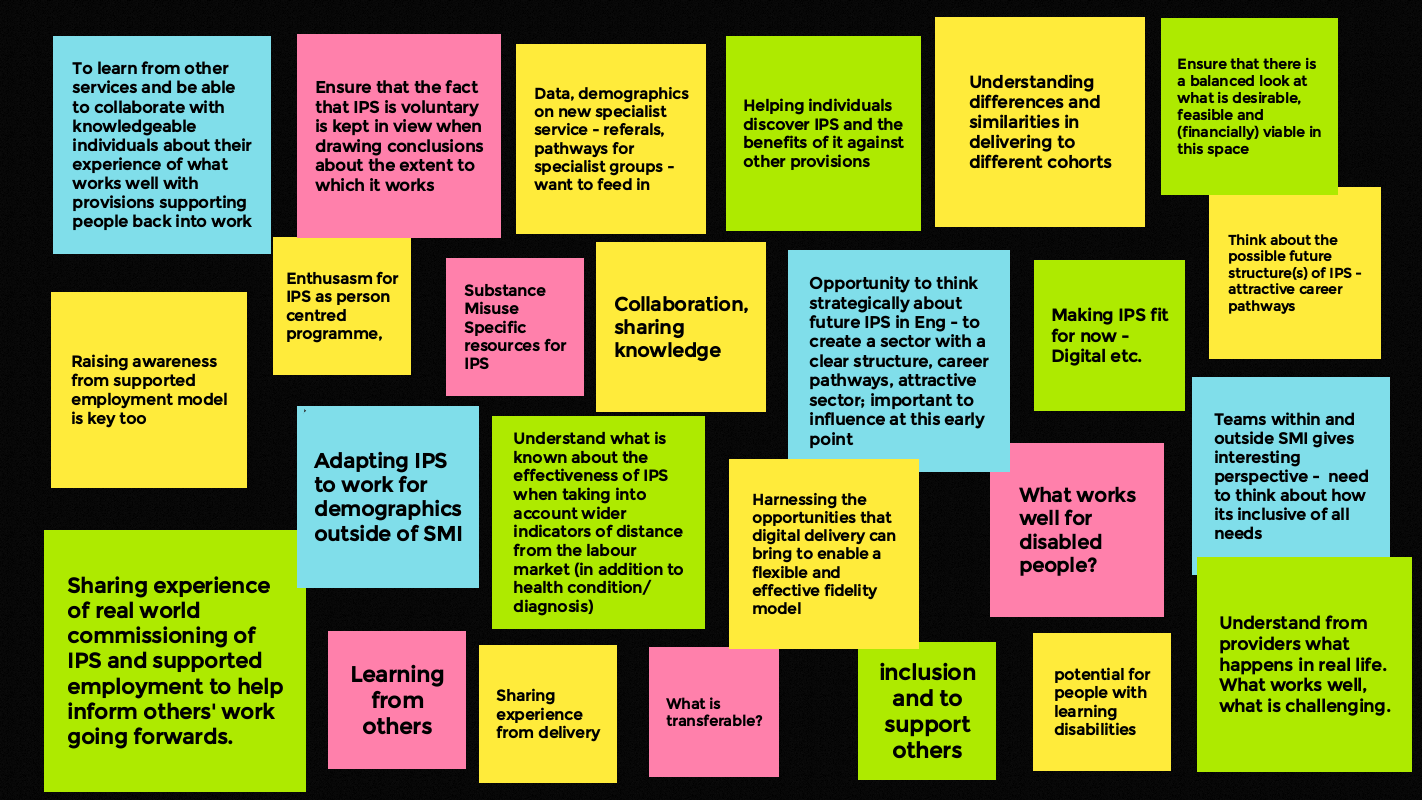New research explores the benefits of innovative employment interventions
By Jane Cullingworth - Posted on 26 May 2022
Dr Jane Cullingworth looks at what a new research project into supported employment models for those with severe mental health conditions will involve.
For over 40 years, the Individual Placement and Support (IPS) and Supported Employment (SE) models have been helping people with disabilities to secure and maintain paid employment. These interventions place people directly into mainstream employment – an approach known as “place then train” rather than “train then place” – making them distinct from many traditional models. Individual Placement and Support and Supported Employment are voluntary, intensive, integrated into clinical teams, tailored to the individual’s work preferences and built around adherence to a fidelity scale. International evidence shows these approaches to be highly effective in improving both employment and health outcomes, resulting in significant benefits to individuals and society.
Populations beyond Severe Mental Illness
There is growing use of Individual Placement and Support and Supported Employment in diverse population groups and healthcare settings beyond severe mental health. The UK government is currently sponsoring six large scale trials and pilots of IPS in populations beyond Severe Mental Illness (SMI). New populations include individuals with low to moderate mental health and/or physical health conditions, chronic pain, autism, learning disabilities, as well as people who have experience of the criminal justice system, homelessness and/or substance use issues.
Researching the field beyond SMI
Professor Adam Whitworth from the Department for Work, Employment and Organisation (WEO) is the Principal Investigator of a two-year National Institute for Health Research (NIHR) funded research project which will provide new scholarly and applied understandings as well as practical policy guidance and resources in response to the opportunities and challenges of Individual Placement and Support and Supported Employment with broader population groups. The project does this in four main ways.
1. It delivers a systematic review of IPS and SE interventions beyond severe mental health population groups in order to provide a full understanding of the evidence base.
2. It conducts qualitative research with policy stakeholders, provider organisations and service users along with their carers from several of the UK’s main IPS and SE interventions beyond severe mental health to explore experiences and learnings to inform future policy practice.
3. It delivers cost-benefit analyses of six policy scenarios and develops an open source cost benefit calculator for wider future use.
4. It develops an applied toolkit of practical resources for policy commissioners and providers to support the improved future design and delivery of IPS and SE services beyond mental health population groups and healthcare settings.
Engaging partners
Central to the project ethos is the involvement of researchers who are Experts by Experience - individuals who have lived experience of disability and advocacy. The qualitative research approach is being co-produced with disabled researchers. The wider research team draws expertise from academics at the Healthy Lifespan Institute at the University of Sheffield and three third sector organisations: Breakthrough UK, Speakup Self Advocacy and Social Finance.
The project will also collaborate with a wider range of stakeholders including the Office for Health Improvement and Disparities, Centre for Mental Health, West Midlands, Sheffield City Region and Greater Manchester Mayoral Combined Authorities, South Yorkshire Housing Association, Maximus Remploy, Humankind, Westminster Drug Project, Little Gate, Hillside Clubhouse, The Education People and ENABLE.
For more information, please contact Jane Cullingworth, Research Associate, at jane.cullingworth@strath.ac.uk. The photograph reflects what the various partners who are involved in the research think is important to learn from the project.










